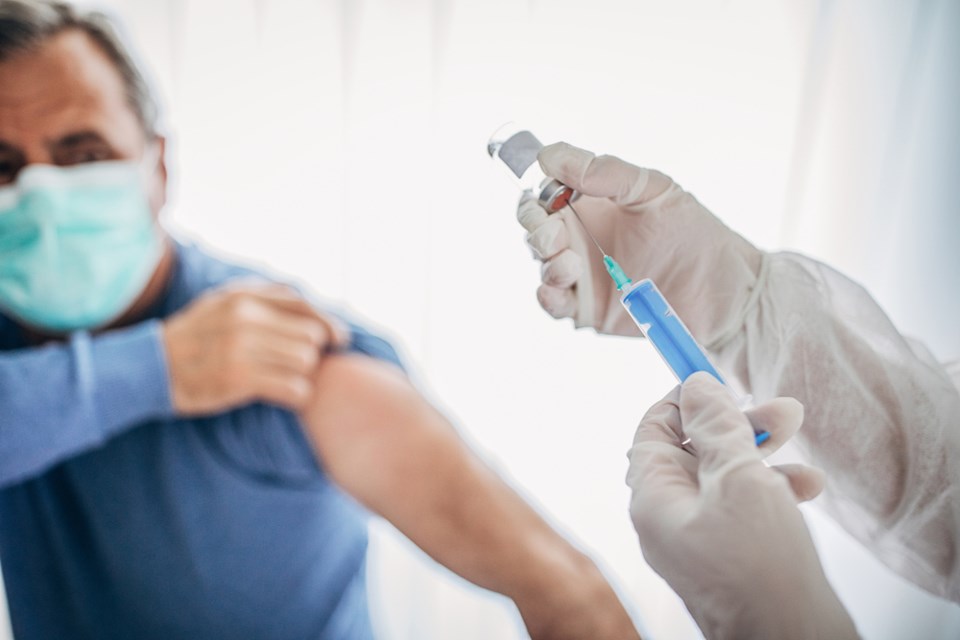It may not have been by design, but the B.C. health ministry has released some data that may eventually form the basis on which to bring in new COVID-19 restrictions or even a virus-related passport of some sort.
Late last week, the ministry for the first time released a breakdown, by age and health authority, of who is and who is not being vaccinated against the virus.
The document revealed that, as suspected, people aged 20 to 45 have low vaccination rates in the Interior and northern parts of B.C.
While every older age group in Â鶹´«Ã½Ó³»Coastal, Fraser and Â鶹´«Ã½Ó³»Island health authorities has a vaccination rate ranging from the mid-70 percentile to the low-90 percentile, the rate among younger people in the Interior and the north is woefully and dangerously low – mid-60 percentile in the Interior and about 60% in the north.
The data now provides a publicly available benchmark to measure vaccination efforts in the weeks ahead, to see how much progress is being made to get those vaccination numbers up in that younger age cohort.
A special push to boost the vaccination rate in these regions was recently announced. A new awareness campaign and more resources will be used to boost the numbers.
If there is not much progress made by September, would public health authorities simply throw up their hands in frustration or would they consider another option: the requirement of proof of vaccination to engage in certain activities or attend certain events?
In other words, will proof of vaccination eventually be required for people to go to bars, restaurants, nightclubs, movie theatres or fitness classes in places like parts of the Okanagan or Nelson or Creston, if vaccination rates remain stubbornly low?
While Dr. Bonnie Henry has favoured using the carrot instead of the stick to get people to “buy in” to her advice and public health orders, her recent decision to impose new restrictions on the Central Okanagan – where case counts have risen quickly – is a sign that she is not averse to using the stick as well, if needed.
Considering more than 80% of British Columbians have willingly received at least one dose of vaccine (and we are rapidly approaching the 70% mark for those with two doses), any crackdown by public health on the non-vaccinated would likely enjoy wide public support.
If B.C. hits a wall in the Interior and/or the north when it comes to getting a first dose in the arms of at least 85% of people, I would not be surprised if a combination of incentives and disincentives takes shape.
Simply allowing the Delta variant to spread for an indefinite period around communities with low vaccination rates does not seem to be a realistic option.
Other places – notably France and Israel – are cracking down on those refusing to be vaccinated. Alberta is going in the opposite direction but Health Minister Adrian Dix has made it clear that B.C. will not be following Alberta’s lead in any way.
If anything, B.C. authorities may be prepared to get even tougher on those who refuse the jab for no good reason.
Keith Baldrey is chief political reporter for Global BC.
